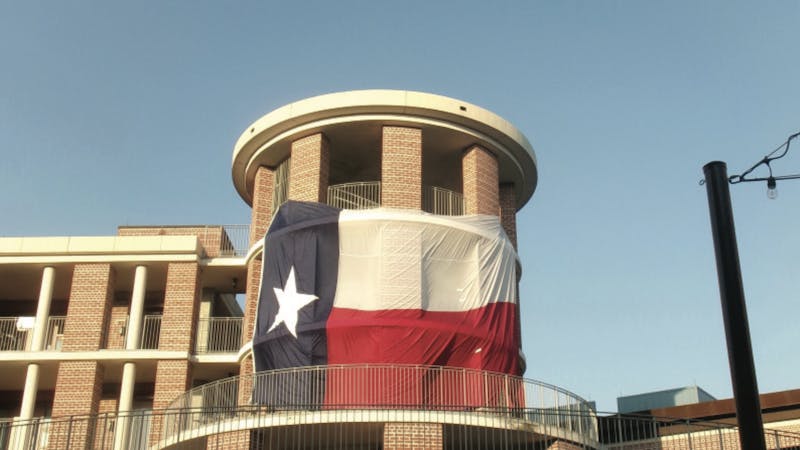Blanket Tax Crack Team proposes 'pot of gold' method for organization funds
The Blanket Tax Crack Team is currently developing legislation introducing a new “pot of gold” model for blanket tax collection and distribution, which could be adopted for future years if approved by the Rice Student Association.
The SA Senate established the Crack Team, chaired by senior Nick Cornell, in November to create an alternative to the current blanket tax system. According to Cornell, who is also president of Sid Richardson College, the Crack Team based its proposal on input from several different sources.
“Inspiration for the individual brainstorming [came] from looking at other institutions, talking to students, or thinking about how to fix a specific problem we raised with the current system,” Cornell said. “When we gathered to bring our individual ideas together, we quickly saw that many of them overlapped significantly. After piecing the ideas together and working out immediate areas of concern, the ‘pot of gold’ model was born.”
In December, the Crack Team presented its alternative proposal to the SA. Under the proposed “pot of gold” system, all students would pay a blanket tax toward a central fund; then, voter-approved student organizations would submit annual budget requests, which would be paid out from the fund following approval by a standing committee. Current blanket tax organizations are the SA, University Court, Honor Council, Rice Student Volunteer Program, Rice Program Council, KTRU, Rice Broadcast Television, the Campanile and the Thresher.
Currently, blanket tax organizations request a certain fee per student to be levied on all Rice undergraduates to support their activities. For example, RPC and the campus Beer Bike committee currently charge $23 per student to pay their expenses. These fees amount to $79 plus another $20 for intramural sports, the same amount that would be required under the “pot of gold” system. University Court Chair Brian Baran, another member of the Crack Team, said the proposal would add adaptability to the current model.
“The current system is inefficient because it locks organizations into a set amount that is exceedingly difficult to increase or decrease,” Baran, a Duncan College senior, said. “The new model will better allow organizations to obtain an appropriate level of funding each year rather than trying to find and lock in the perfect amount for the next five, 10, or 20 years … Ultimately, the blanket tax exists to further student and community interests, which are flexible from year to year, so there should also be flexibility in how student money is allocated.”
The Crack Team’s presented plan also calls for organizations to return a surplus above an undecided percentage to the “pot of gold” fund. Any unallocated money would be used to form an initiative fund for one-time expenses.
“The review process will be more straightforward in that it will need to consider only each year’s proposed budget as well as a comparison of the previous year’s actual expenditures to the amounts approved, rather than the three years of historical data currently considered,” Baran said. “This will allow for improved, forward-looking oversight that benefits both organizations and the student body at large.”
According to Cornell, the proposal’s simplification of the blanket tax budgetary process will eliminate unnecessary bureaucracy and increase the accountability of the allocation process.
“I think a lot of argument and frustration in the past has, fundamentally, come from different perspectives about how much money is reasonable to spend where,” Cornell said. “The new model moves these discussions to the front of the fiscal year. There is transparency and agreement between the central committee and an organization on how much can be reasonably spent on what.”
After the legislation for the model has been finished, the SA constitution requires that two-thirds of the student body approve the changes in a general election. Cornell said such a move would serve student interests by making funding more accessible.
“The new model allows for students’ needs and interests to be addressed rapidly,” Cornell said. “There will be a standing ‘pot of gold’ to fund new proposals or organizations that have the passion and manpower to make something wonderful happen — but are sadly lacking in finances … When students get excited and have a vision, having them arbitrarily held back by a lack of seed funding seems foolish.”
More from The Rice Thresher
Rice lands high on Niche, Forbes college ranking lists
Rice recently ranked No. 10 on Niche’s Best Colleges in America list and No. 12 on Forbes’ annual America’s Top Colleges list in 2026. It was also recognized in several categories by the Princeton Review, placing in the top 10 in four categories.
From post-human novels to augmented reality, Rice hires new faculty
Rice welcomed 97 new professors this fall across disciplines, including a posthumanist Harvard scholar, a husband-wife duo and a computer science professor who graduated from Rice thrice.

First public of the year reckons with threats of a dry campus
After a Dis-O that saw four times as many calls for intoxication-related transports of students to the hospital compared to the prior three years, Cory Voskanian, a Martel College socials head tasked with planning the first public of the year, said that he was feeling the pressure.


Please note All comments are eligible for publication by The Rice Thresher.